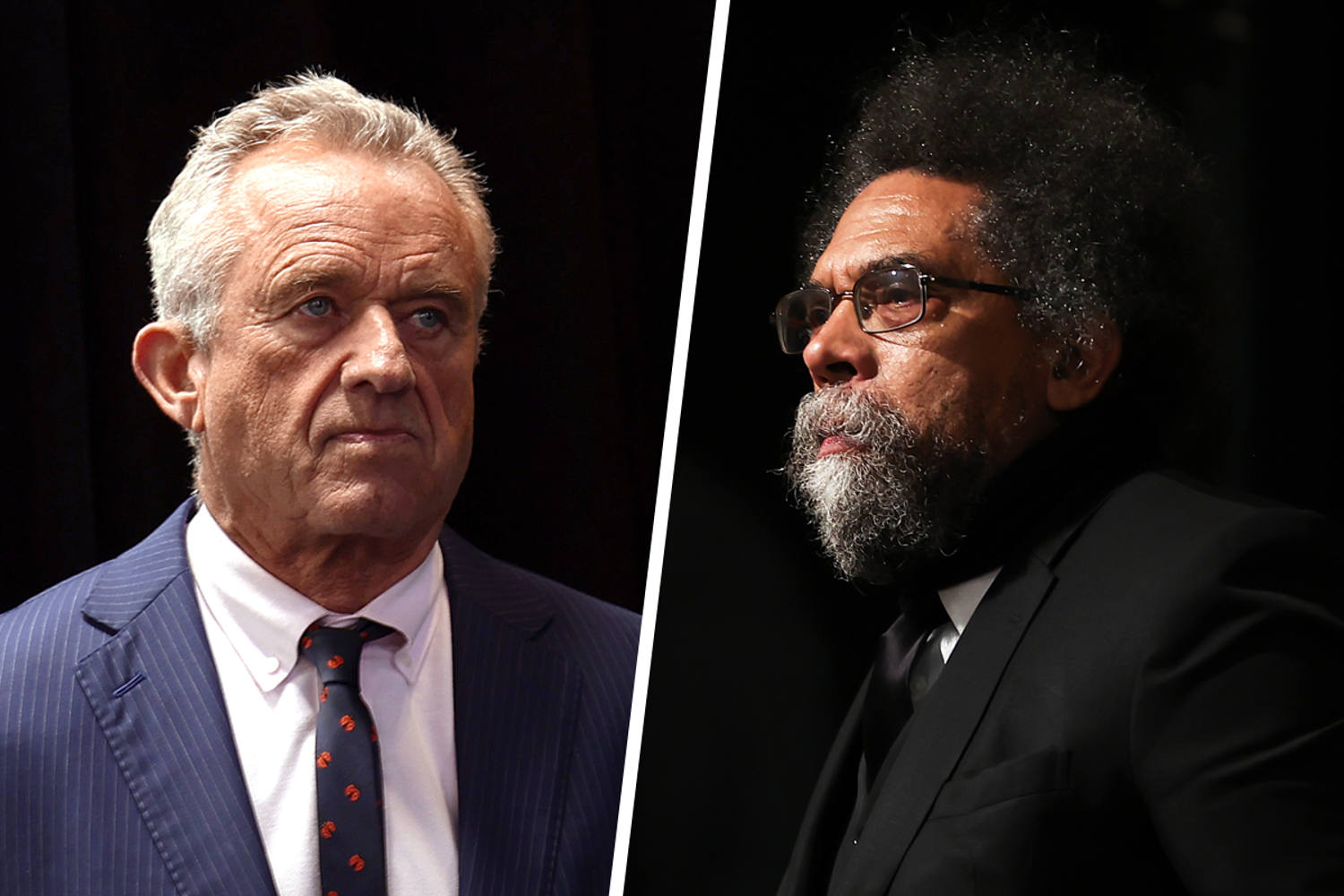
North Carolina’s state Board of Elections voted against giving ballot access to new parties supporting presidential candidates Robert F. Kennedy Jr. and Cornel West on Wednesday night, though the decision is not final and will be revisited before the November election in the key battleground state.
The decision split the board along party lines, with the three-member Democratic majority voting to keep West and Kennedy off the ballot “for now,” and the two Republican commissioners said they were “disappointed” by the process.
Chairman Alan Hirsch said more investigation is needed to “look at petition-gathers who have been problematic” and to examine other concerns before making a final decision.
In a virtual meeting, commissioners discussed an NBC News report that showed out-of-state operatives with a GOP firm were secretly collecting signatures for West, a left-wing academic, in an apparent attempt to “take away votes from Joe Biden,” as one petition-gatherer told attendees outside a planned rally for former President Donald Trump.
They also worried Kennedy allies are inappropriately exploiting election laws by creating a new party, which would then make Kennedy its nominee in order to place his name on the ballot, instead of trying to get the independent candidate on the ballot himself. The bar is lower for new parties compared to independent candidates, who are required to collect more signatures.
“If this board keeps rubber-stamping thinly veiled so-called parties, national operatives are going to continue to come in and keep manipulating our system,” said commissioner Siobhan Millen, a Democratic appointee. “Allowing unaffiliated candidates to follow the more lenient new-party rules is allowing a blind eye to partisan mischief, potentially.”
They also voted to deny certification of a far-right party founded by anti-abortion activist and perennial presidential candidate Randall Terry.
The decision comes amid an emerging national proxy war between the two major parties over independent and third-party candidates. Democrats generally believe that any minor candidates will split the anti-Trump coalition and hurt Biden, while Republican views are more complicated.
Republicans on the panel objected to the moves, noting that the pro-West and pro-Kennedy parties had submitted the necessary number of signatures.
“It just appears to me that this is yielding to political pressure,” said Stacy “Four” Eggers IV, a Republican appointee.
The Republican National Committee and Trump’s campaign blasted the decision, calling it “election interference” and threatening retribution.
“Those who have engaged in these un-American acts must be prosecuted to the fullest extent of the law and receive the harshest punishment possible so these injustices will never be repeated,” Trump campaign communications director Steven Cheung said in a statement.
The North Carolina Democratic Party and a pro-Biden super PAC called Clear Choice sent lengthy complaints to the board raising issues with the signatures gathered and the manners in which they were collected for Kennedy and West.
Asked about the NBC News report, which revealed that three operatives with a Republican canvassing firm based in Colorado were collecting signatures on behalf of the pro-West Justice for All Party, the party’s chairman said he was happy for any help he could get.
“When somebody asked me if they could collect signatures for the party, I didn’t think it would have been prudent for me to say no,” Justice for All Chairman Italo Medelius told commissioners during the meeting.
Jeff Carmon, a Democratic commissioner, interrupted: “I think it would have been prudent to get more information from them and to properly train them to make sure what they were doing was in alignment with what you, in the party, intended. And I don’t see that happened.”
“Yes sir, you are right,” Medelius replied. “That was an oversight that we will, if we do have another petition process, we will fix.”
The board chair said it will investigate the matter and take another vote next month.







